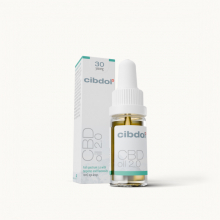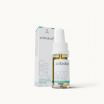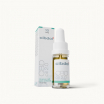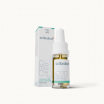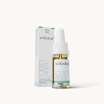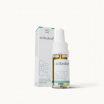Should I Take CBD With Or Without Food?
Published:
CBD, or cannabidiol, has become increasingly popular in recent years for its potential health and wellness benefits. Unlike THC, the psychoactive compound in cannabis, CBD is non-intoxicating and widely available in products like oils, edibles, capsules, and more. With so many CBD options to choose from, one common question is whether it should be taken with food or on an empty stomach.
Contents:
- How Does Food Impact CBD Absorption?
- Faster Effects Without Food
- Fewer Side Effects With Food
- Consider Timing and Lifestyle Habits
- What About Taking CBD Between Meals?
- Which Type of CBD is Best With or Without Food?
- Maximizing Absorption of CBD
- Key Takeaways on Ingesting CBD with Food or Without
- Frequently Asked Questions
- What happens if I take CBD without eating anything?
- How long should I wait to eat after taking CBD oil?
- Is it okay to take CBD when intermittent fasting?
- Should I take CBD with coffee in the morning?
- What about taking CBD before bedtime - with or without food?
- What types of fat promote the most CBD absorption?
- How much fat is needed to increase CBD absorption?
- What is the difference in bioavailability of CBD with vs. without food?
- Should I take CBD oil on an empty stomach before a blood test?
- Can I take CBD if I’m prone to heartburn?
- Is taking CBD oil with grapefruit safe?
- How long do effects last with or without food?
- Should I avoid taking CBD before an important meeting or event?
- Can I take CBD while pregnant or breastfeeding?
- Is mixing CBD with alcohol safe?
When it comes to optimizing the effects of CBD, the answer isn’t quite so straightforward. There are pros and cons to taking CBD with food versus without that are important to consider. Here’s a closer look at how to get the most out of your CBD intake.
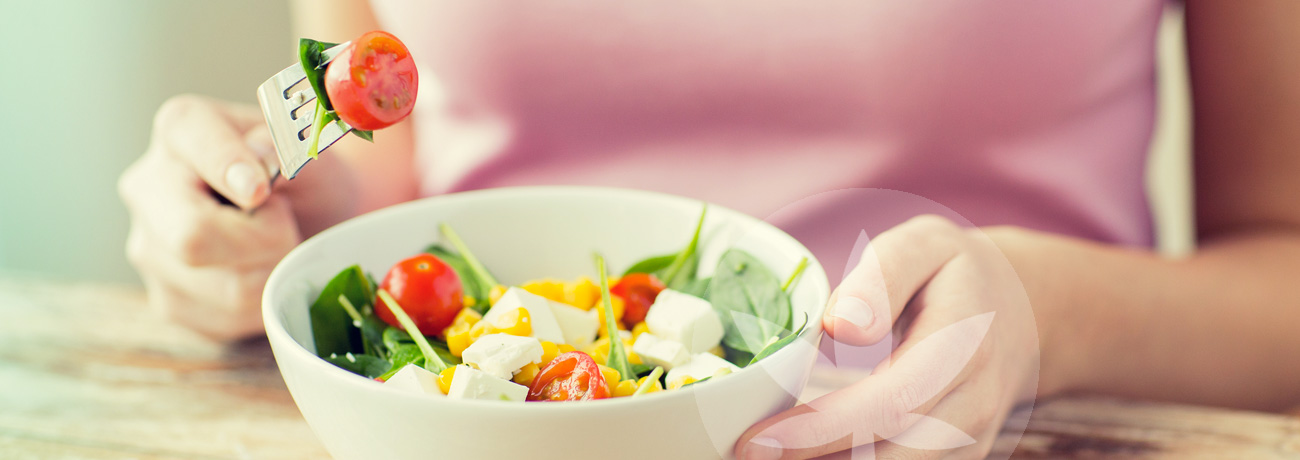
How Does Food Impact CBD Absorption?
CBD, like other cannabinoids, is fat-soluble. This means it dissolves in fats or oils, but not water. Taking CBD with a meal that contains healthy fats allows the CBD compounds to effectively bind with the fats. This process facilitates absorption through the digestive tract and the transport of CBD molecules throughout the body via lymphatic and circulatory systems.
The type of food matters when it comes to boosting CBD absorption. Meals rich in medium chain triglycerides (MCTs) like coconut oil, full-fat yogurt, cheese, butter, and eggs are ideal. The fats in these foods help carry CBD molecules across cell membranes so the compounds can reach the bloodstream and interaction with the endocannabinoid system.
Without fats or oils to dissolve in, CBD molecules have a harder time getting absorbed by the body. Taking CBD on an empty stomach typically results in lower bioavailability than taking it with food.
However, absorption isn’t the only factor when considering using CBD with food or without. The timing of effects and experiences of side effects should be weighed as well.
Faster Effects Without Food
While taking CBD with fatty foods can increase overall absorption, it also slows down the rate of absorption. Without food, CBD can enter the bloodstream through capillaries under the tongue. This sublingual administration enables CBD compounds to bypass the digestive system and liver metabolism, reaching the bloodstream faster.
Effects from CBD oil taken sublingually may be felt within 15 to 30 minutes. Capsules, gummies, and other edibles containing CBD tend to take 60 to 90 minutes before effects are noticed because they must pass through the digestive system. The food in the stomach further slows absorption compared to taking CBD sublingually on an empty stomach.
If seeking fast relief, taking CBD oil drops or tinctures without food can provide faster onset effects. This method is ideal for those using CBD acutely for things like anxiety attacks, pain flares, headaches, or poor sleep.
Fewer Side Effects With Food
For those new to CBD, taking it on an empty stomach can heighten side effects like drowsiness, dizziness, and low blood pressure. Nausea or gastrointestinal discomfort are also more common without food.
Eating a small snack like a few crackers before dosing CBD can help minimize adverse reactions. Fatty foods are even better for not only decreasing side effects but also maximizing the benefits through improved absorption.
While it may take longer to feel the effects throughout the entire body when taken with food, CBD is often more tolerable this way, especially for new CBD users.
Consider Timing and Lifestyle Habits
So should you take CBD with or without food? The best practice depends on your individual needs and preferences around timing of effects, susceptibility to side effects, and regular eating habits. Here are some examples of when to use each method:
-
Take CBD with food if you:
- Want to improve overall absorption
- Are newer to using CBD and prone to side effects
- Prefer slower, longer-lasting effects
- Regularly eat meals and snacks
-
Take CBD without food if you:
- Want faster onset of effects
- Are experienced with CBD and tolerate it well
- Prefer shorter-acting effects
- Have an irregular meal schedule or fast intermittently
What About Taking CBD Between Meals?
The timing of when to take CBD doesn’t have to be limited to just with food or without. Taking CBD supplements between meals or several hours after eating enables partial absorption via capillaries in the mouth while also drawing out effects as it passes through the digestive tract.
This way allows CBD compounds to enter the bloodstream rapidly through the oral mucosa while getting an absorption boost from food remains in the stomach. CBD taken in this fashion provides a balance of quick onset and sustained effects.
No matter when you take CBD relative to food, consistency is key for managing symptoms and getting the optimal benefits. Take CBD with or without food and at the same times of day to establish a routine and better gauge effectiveness. Monitoring factors like changes in symptoms and sleep, mood, focus, etc. can help determine the best protocol.
Which Type of CBD is Best With or Without Food?
Both CBD oils and capsules can be taken with or without food with slightly different advantages based on the format:
- CBD oils: Higher bioavailability when taken with food but faster effects taken without. Oils allow easy sublingual use for faster absorption when needed.
- CBD capsules: Less precise dosing than oils since capsules come in set amounts, but longer effects and fewer side effects when taken with food.
CBD edibles like gummies almost always need to be taken with food to aid absorption and offset side effects unless a fasting period is desired.
For tinctures and sprays, the considerations are similar to oils in terms of sublingual use providing faster effects and higher bioavailability with food.
Maximizing Absorption of CBD
Aside from coordinating CBD intake with meals or not, there are other ways to boost absorption:
- Take CBD with coconut oil - Mixing CBD oil with coconut oil, adding it to coffee, or baking with coconut oil can all help absorption.
- Hold it under the tongue - Keeping CBD oil or sprays in mouth for 60-90 seconds before swallowing enables sublingual absorption.
- Use CBD consistently - Steady dosing helps absorption rates since the body gets used to processing it.
- Avoid swallowing right away - Letting the CBD oil coat the mouth lining before swallowing increases sublingual absorption.
- Use an emulsifier - CBD products formulated with emulsifiers like sunflower lecithin, polysorbate, etc. improve water solubility.
- Stay hydrated - Drinking enough water helps circulation and fights dehydration that can interfere with absorption.
No matter how you take CBD, give the method a few weeks before changing your approach to fully gauge the effects. Be consistent and attentive to your body’s response.
Key Takeaways on Ingesting CBD with Food or Without
- Taking CBD with fatty foods/oils enhances overall absorption through the digestive tract while sublingual use without food provides faster effects.
- Food helps minimize side effects from CBD but can also prolong the onset of benefits.
- Lifestyle, priorities around effects, and individual factors should guide whether to pair CBD with meals or not.
- Oils and tinctures offer flexibility for both methods while capsules and edibles are best suited for taking with food.
- Beyond food, absorption can be optimized through methods like holding CBD under the tongue, emulsifying, and staying hydrated.
- Give each ingestion method a few weeks before changing routine to properly evaluate.
The debate around taking CBD with or without food will likely continue as more research emerges. But by understanding the mechanisms behind CBD absorption and related effects, you can tailor your intake method to meet your wellness needs and personal preferences.
Experiment to find what works best for your body and health goals. Pay attention to timing of effects, symptom relief, and side effects to hone in on the ideal routine for getting the most from your CBD.
Frequently Asked Questions
What happens if I take CBD without eating anything?
Taking CBD on a completely empty stomach can cause more intense effects along with an upset stomach or dizziness. Have at least a small snack like crackers before taking CBD without food for optimal results.
How long should I wait to eat after taking CBD oil?
Wait at least 15-30 minutes after taking CBD oil sublingually before having a meal or snack. This gives time for the CBD to fully absorb in the mouth before being metabolized through digestive processes.
Is it okay to take CBD when intermittent fasting?
Yes, CBD is safe to take while fasting. However, sublingual oils or sprays work best to get absorption without breaking the fast. Capsules and edibles require digestive processes that can decrease benefits.
Should I take CBD with coffee in the morning?
Taking CBD oil, butter, or coconut oil with your morning coffee is an easy way to get both focused energy and CBD benefits to start the day. The fats in cream, coconut oil, and butter also boost absorption.
What about taking CBD before bedtime - with or without food?
Taking CBD a couple hours before bed with a small fatty snack is ideal to promote restful sleep without nighttime hunger or indigestion. Oils or capsules work well for nighttime use.
In summary, while taking CBD with food helps increase overall absorption, sublingual use on an empty stomach provides faster effects. Consider timing preferences, tendency for side effects, and eating habits to decide what works best for your needs. Adjust intake methods in consistent patterns to find your optimal way to take CBD.
What types of fat promote the most CBD absorption?
Medium chain triglycerides (MCTs) like coconut oil, butter, and other saturated fats provide optimal absorption. Omega-3s in fatty fish and nuts also help. Limit polyunsaturated vegetable oils.
How much fat is needed to increase CBD absorption?
5-10 grams of fat is sufficient. Examples: 1/2 tbsp coconut oil, 1 tbsp heavy cream, 1/4 of an avocado, 1 oz cheese, 2 tbsp peanut butter. No need to consume high amounts of fat.
What is the difference in bioavailability of CBD with vs. without food?
Studies show bioavailability increases by 3-4 times when taken with high fat foods. Without food only about 6% of an oral dose gets absorbed, versus up to 35% absorption with fatty acids.
Should I take CBD oil on an empty stomach before a blood test?
Yes, refrain from taking CBD oil at least 8 hours prior to a blood test for the most accurate results. CBD can interfere with certain lab tests, so best to avoid close to testing.
Can I take CBD if I’m prone to heartburn?
Start with low doses taken with food or antacids until tolerated. Reduce use if CBD worsens GERD symptoms. Sublingual oils and sprays are easiest on the stomach when taken without food.
Is taking CBD oil with grapefruit safe?
Yes, unless on medications contraindicated with grapefruit. The furanocoumarins in grapefruit inhibit drug metabolism, enhancing CBD effects. Monitor for excessive drowsiness and adjust dose as needed.
How long do effects last with or without food?
On an empty stomach, effects may start fading after 4-6 hours. With food, effects can last 8-12 hours. Taking CBD with a high fat meal gives the longest window of benefits.
Should I avoid taking CBD before an important meeting or event?
It’s best to avoid CBD 2-4 hours prior if rapid effects like dizziness are a concern. Or opt to take CBD with a meal beforehand to minimize adverse effects.
Can I take CBD while pregnant or breastfeeding?
It's best to avoid CBD while pregnant or nursing since effects on a developing child are still unknown. Check with your doctor before using CBD if pregnant or breastfeeding.
Is mixing CBD with alcohol safe?
Avoid mixing alcohol and CBD, as both can cause drowsiness and sedation effects. Start with low doses of CBD if drinking to assess effects. Never drive after using CBD and alcohol together.









